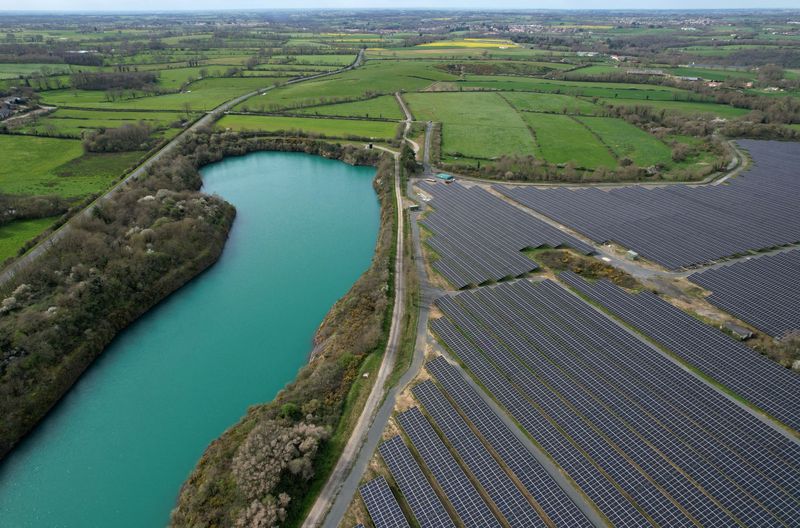Companies ask world leaders at UN to follow through on renewables targets
2024.09.23 12:56
By Valerie Volcovici and Simon Jessop
NEW YORK (Reuters) – Executives from several major companies urged world leaders on Monday to follow through on an international agreement, made at the COP28 summit in Dubai last year, to triple renewable-energy capacity by 2030 to fight climate change.
Companies including massive energy-user Amazon.com (NASDAQ:) and power producers like Vestas and Iberdrola (OTC:), issued the statement at an event on the sidelines of United Nations Climate Week in New York.
They called on countries to include quantifiable renewable-energy capacity targets in their new national climate plans to be submitted to the U.N. next February, and to outline specific investment plans to ensure those goals are met.
Keeping countries focused on tripling renewable energy is among the top themes at Climate Week and the U.N. General Assembly, where world leaders, companies and NGOs hope to reinforce international climate commitments.
Meanwhile, California announced on the sidelines of the events on Monday that it had filed a lawsuit against oil giant Exxon Mobil (NYSE:) over its alleged role in global plastic waste pollution.
Attorney General Rob Bonta said the state decided to sue Exxon after concluding a nearly two-year investigation that he said showed Exxon was misleading the public about the limitations of recycling.
Exxon rejects the claim.
The U.N. is in the midst of a slew of climate-related events that kicked off on Sunday alongside the General Assembly.
In speeches on Sunday, some leaders warned of growing mistrust between nations as climate-fueled disasters mount.”International challenges are moving faster than our ability to solve them,” U.N. Secretary General Antonio Guterres told leaders at the summit.

“Crises are interacting and feeding off each other – for example, as digital technologies spread climate disinformation, that deepens distrust and fuels polarization.”
Prime Minister Mia Mottley of Barbados echoed Guterres’ warning and urged a “reset” in how global institutions are governed so they can better respond to crises and serve those most in need.








